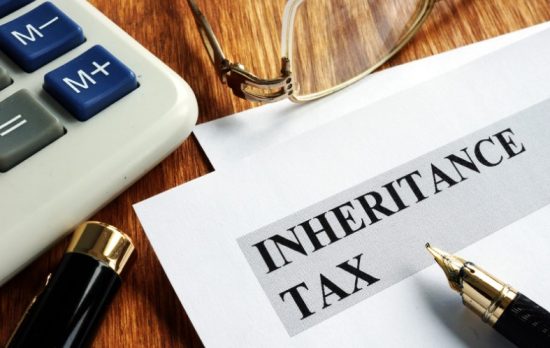Are you curious about inheritance tax in Canada? Wondering how it works and who is responsible for paying for it? Look no further, because we’ve got all the answers you need right here! In this blog post, we’ll dive into the world of inheritance tax in Canada, exploring what it is, how it functions, and even uncovering some exemptions that might save your loved ones from hefty taxes.
What is an Inheritance Tax?

What exactly is an inheritance tax, you might ask? Well, put simply, it is a tax imposed on the transfer of assets or property from one individual to another after the death of the original owner. In Canada, this type of tax falls under provincial jurisdiction rather than federal.
The purpose of an inheritance tax is to generate revenue for the government while also redistributing wealth within society. This means that when someone passes away and leaves behind assets such as real estate, investments, or even cash in their will, there may be taxes owed on those assets before they can be passed down to beneficiaries.
It’s important to note that not all provinces in Canada have an inheritance tax. Currently, only six provinces levy this type of tax – British Columbia, Alberta (only applies in certain circumstances), Manitoba (as a probate fee), Ontario (also known as Estate Administration Tax), Quebec (known as “succession duties”), and Nova Scotia.
Each province has its own rules and regulations regarding how much the inheritance tax will be and who is responsible for paying it. It’s crucial to consult with a professional advisor or lawyer in Canada who specializes in estate planning to ensure you are fully informed about your specific province’s requirements.
How Does the Inheritance Tax Work in Canada?
It’s a common question for those who are concerned about their financial future and want to ensure that their loved ones are taken care of after they’re gone. In Canada, the inheritance tax is called the estate tax or probate fees.
When someone passes away, their estate (which includes all their assets like property, investments, and personal belongings) goes through a legal process called probate. During this process, any debts owed by the deceased are paid off and then the remaining assets are distributed according to their will or provincial laws if there is no will.
The amount of taxes owed on an estate depends on its total value. Each province has different rules regarding estate taxes, so it’s important to consult with a lawyer or accountant familiar with your specific province’s regulations.
Generally speaking, beneficiaries do not have to pay income tax on inherited assets. However, any income earned from those assets in subsequent years may be subject to taxation.
It’s worth noting that some provinces have introduced measures to reduce or eliminate estate taxes for small estates. This means that if an estate falls below a certain threshold value (such as $50,000), it may not be subject to any taxes at all.
Understanding how the inheritance tax works in Canada can help you plan and make informed decisions about your finances. If you have concerns or questions about your situation, it’s always best to seek professional advice tailored specifically to your needs and circumstances
Who Pays the Inheritance Tax in Canada?

In Canada, it is important to note that the estate of the deceased person is primarily responsible for paying any inheritance tax owed.
When someone passes away, their assets and property are transferred to their estate. The executor or administrator of the estate takes on the responsibility of managing these assets and ensuring any outstanding debts, including taxes, are paid off before distributing what remains to the beneficiaries.
The executor or administrator must file a final tax return on behalf of the deceased individual. This includes reporting any income earned by the estate during its administration period as well as calculating and paying any applicable inheritance tax.
It’s worth mentioning that certain types of assets may be exempt from inheritance tax in Canada. For example, if an individual leaves behind a principal residence, it can generally be passed on without being subject to taxation.
In some cases where there are joint owners or designated beneficiaries for certain assets such as life insurance policies or registered retirement savings plans (RRSPs), these assets may bypass probate altogether and pass directly to those individuals outside of the scope of inheritance taxation.
While it may be initially confusing who pays the inheritance tax in Canada, understanding that it falls under the responsibility of an individual’s estate helps clarify this matter. Executors or administrators play a crucial role in ensuring all necessary taxes are settled before distributing inheritances according to legal requirements.
How Much is the Inheritance Tax in Canada?
How much is the inheritance tax in Canada? This question often arises when people consider their estate planning and how it will affect their loved ones.
In Canada, unlike some other countries, there is no specific inheritance tax that applies at the federal level. However, certain provinces may impose a probate fee or an estate administration tax on the value of an individual’s assets upon death. These fees are calculated based on a percentage of the total value of the estate.
The rates for these fees can vary depending on which province you reside in. For example, in Ontario, estates valued over $50,000 are subject to a probate fee of approximately 1.5% up to a maximum fee of $15,000. In British Columbia, estates valued over $25,000 are subject to an estate administration tax ranging from 0.6% to 1.4%.
It’s important to note that these fees only apply if your assets go through probate or require formal legal administration after your passing. If you have structured your estate plan properly using strategies such as trusts or joint ownership arrangements with the right of survivorship, you may be able to minimize or avoid these fees altogether.
What Are the Exemptions to the Inheritance Tax in Canada?

Exemptions to the inheritance tax in Canada provide some relief to beneficiaries during a difficult time. While the tax does not apply to all estates, it’s essential to understand the exemptions that may apply.
- One of the notable exemptions is the spousal exemption. When one spouse passes away and leaves their assets to their surviving spouse, no inheritance tax will be levied on these transfers. This exemption recognizes the importance of supporting spouses and preventing financial burdens during times of loss.
- Another exemption exists for charitable donations. If an individual includes a charitable donation in their will, that amount will be exempt from inheritance tax. This encourages philanthropy and supports organizations working towards various causes within Canadian society.
- Certain types of property are also exempt from inheritance taxes. For example, if an estate consists primarily of family-owned farms or small businesses, there may be provisions for reduced or eliminated taxes on those assets. These exemptions aim to protect important sources of income and maintain stability within communities.
- In addition, life insurance proceeds are typically exempt from inheritance taxes as well. The policyholder has already paid premiums throughout their lifetime, so taxing these funds again would impose unnecessary financial burdens on beneficiaries.
- Understanding these exemptions can help individuals plan their estates effectively by minimizing potential taxation liabilities while ensuring a smooth transfer of wealth upon death.
Conclusion
Inheritance tax in Canada can be quite complex so it is important to understand all the details before making any decisions. Consult with a qualified financial advisor or accountant if you have questions about your situation and potential liabilities. The most important thing to remember is that there are strategies available for reducing or avoiding inheritance taxes, such as using spousal exemptions and other methods of estate planning. With the right knowledge and advice, you can ensure that your hard-earned assets are distributed according to your wishes while minimizing taxation consequences.
FAQs – Inheritance Tax in Canada
1. Do you have to pay tax on an inheritance in Canada?
In Canada, inheritances are not subject to any direct taxes. This does not exclude taxes from being paid on property and assets passed to heirs, though. Before the estate is distributed, these taxes are paid.
2. How to avoid paying capital gains tax on inherited property in Canada?
Making an inherited piece of property your primary residence in Canada is the main strategy to avoid paying capital gains tax on it. You or the estate won’t owe capital gains tax upon taking ownership of the property if it was the primary residence of the person who passed it on to you.
3. What happens if I inherit a house in Canada?
In most cases, the cost of inheritance is equivalent to the considered proceeds of disposition for the dead person. This sum is typically the property’s FMV at the time of the owner’s passing. There are a few exceptions to this rule, though.
4. What happens to investments when someone dies Canada?
The disposition of capital property (such as real estate, investments, or personal property) owned by the decedent is deemed to have occurred immediately before the decedent’s death at fair market value and could lead to a capital gain or loss that needs to be reported on Schedule 3 of the final return.











